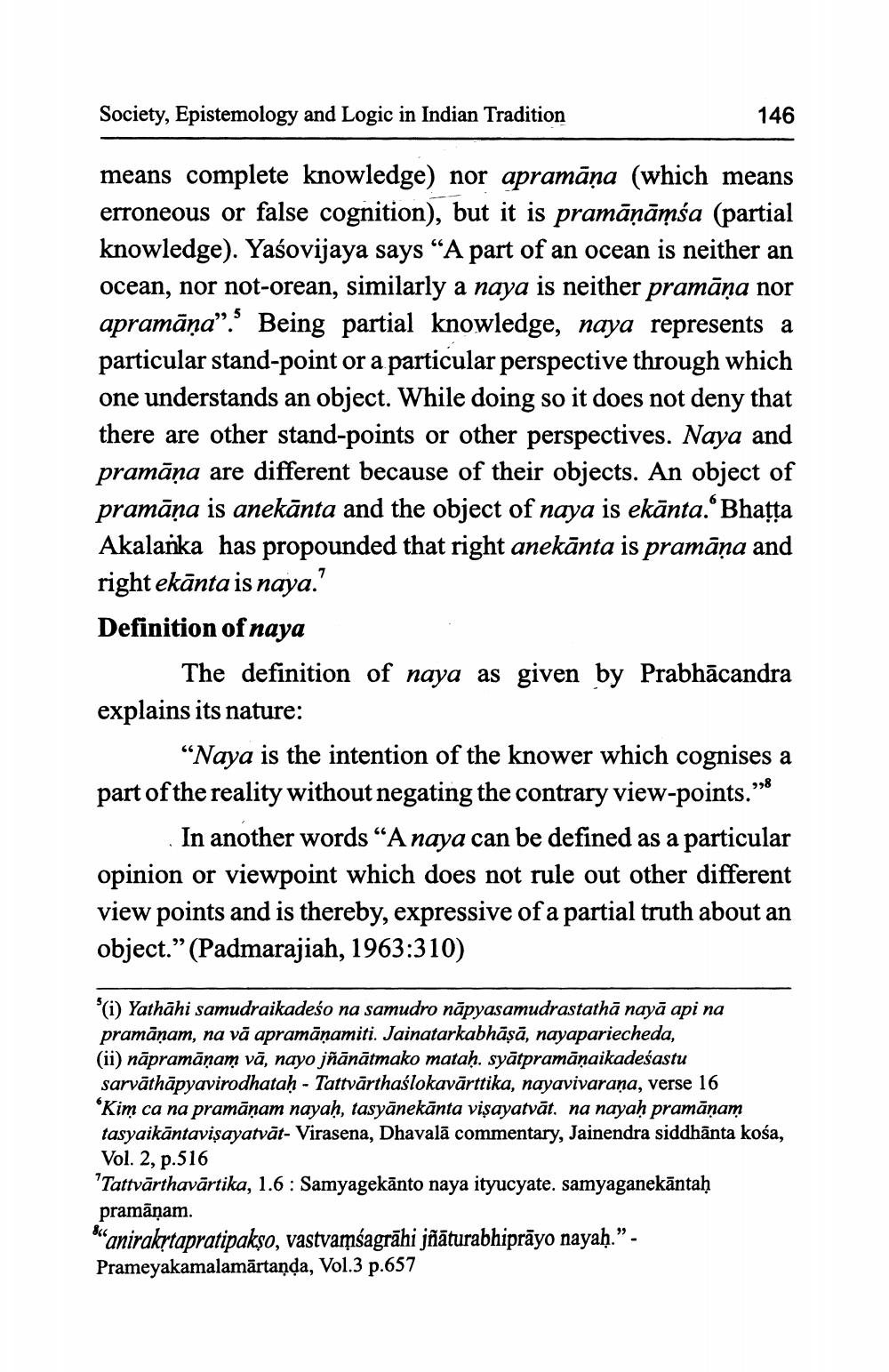________________
Society, Epistemology and Logic in Indian Tradition
146
means complete knowledge) nor apramāna (which means erroneous or false cognition), but it is pramāņāmśa (partial knowledge). Yaśovijaya says “A part of an ocean is neither an ocean, nor not-orean, similarly a naya is neither pramāņa nor apramāņa”.' Being partial knowledge, naya represents a particular stand-point or a particular perspective through which one understands an object. While doing so it does not deny that there are other stand-points or other perspectives. Naya and pramāņa are different because of their objects. An object of pramāṇa is anekānta and the object of naya is ekānta.'Bhatta Akalanka has propounded that right anekānta is pramāna and right ekānta is naya.” Definition of naya
The definition of naya as given by Prabhācandra explains its nature:
“Naya is the intention of the knower which cognises a part of the reality without negating the contrary view-points.”
In another words “Anaya can be defined as a particular opinion or viewpoint which does not rule out other different view points and is thereby, expressive of a partial truth about an object.” (Padmarajiah, 1963:310)
(i) Yathāhi samudraikadeśo na samudro nāpyasamudrastathā nayā api na pramāṇam, na vā apramāṇamiti. Jainatarkabhāṣā, nayapariecheda, (ii) nāpramāņam vā, nayo jñānātmako mataḥ, syātpramānaikadeśastu sarvāthāpyavirodhataḥ - Tattvārthaílokavārttika, nayavivarana, verse 16 *Kim ca na pramāņam nayaḥ, tasyānekānta vişayatvāt. na nayaḥ pramānam tasyaikāntavişayatvāt- Virasena, Dhavalā commentary, Jainendra siddhānta kośa, Vol. 2, p.516 *Tattvārthavārtika, 1.6 : Samyagekānto naya ityucyate. samyaganekāntaḥ
pramāņam. Wanirakrtapratipakṣo, vastvamsagrāhi jñāturabhiprāyo nayah.”Prameyakamalamārtaņda, Vol.3 p.657




